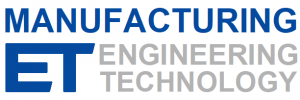Reading Assignment
- 30.1 Introduction to Consolidation Processes
- 30.2 Classification of Welding and Thermal Cutting Processes
- 30.3 Some Common Concerns
- 30.4 Types of Fusion Welds and Types of Joints
- 30.5 Design Considerations
- 30.6 Heat Effects
- 30.7 Weldability or Joinability
- AWS Certified Welding Engineer
Additional Reading
- Welding Principles and Applications, 4th ed., 1999, Larry Jeffus
- AWS/ANSI Z49.1 – Safety in Cutting, Welding, and Allied Processes (pdf download)
- Study Guide – Welding
- AWS D1.1/D1.1 M2006 Structural Welding Code – Steel (in library)
- B5.16:2006, Specification for the Qualification of Welding Engineers (see AWS)
Outline
Thermal Joining
- Welding
- Brazing
- Soldering
Welding
Major Classifications
- Solid State Welding
- Fusion Welding
AWS Classifications
- Oxyfuel Gas Welding (OFW)
- Oxyacetylene Gas Welding (OAW)
- Pressure Gas Welding (PGW)
- Arc Welding (AW)
- Shielded Metal Arc Welding (SMAW)
- Gas Metal Arc Welding (GMAW)
- Gas Tungsten Arc Welding (GTAW)
- Flux Cored Arc Welding (FCAW)
- Submerged Arc Welding (SAW)
- Plasma Arc Welding (PAW)
- Stud Welding (SW)
- Resistance Welding (RW)
- Resistance Spot Welding (RSW)
- Projection Welding (RPW)
- Solid State Welding (SSW)
- Forge Welding (FOW)
- Cold Welding (CW)
- Friction Welding (FRW)
- Ultrasonic Welding (USW)
- Explosion Welding (EXW)
- Roll Welding (ROW)
- Unique Processes
- Thermit Welding (TW)
- Laser-Beam Welding (LBW)
- Electroslag Welding (ESW)
- Flash Welding (FW)
- Induction Welding (IW)
- Electron-Beam Welding (EBW)
Safety Considerations (General)
- Electrical Shock
- Fumes and Gases
- UV Radiation (see ANSI Z49.1 & Z87.1)
- Fire & Explosion Hazards
- Flying Metal (from welding, chipping, grinding, cooling, etc. )
- Gas buildup
- Hot Parts & Electrodes
- Magnetic Fields
- Noise
- Cylinder safety
Basic Weld Positions and Joints
- Weld Nomenclature
- Root
- Leg
- Face
- Throat, Effective Throat
- Weld Types
- Fillet
- Plug
- Stud
- Groove
- V-groove
- J-groove
- U groove
- Intermittent
- Surfacing
- Joint Types
- Positions
- Weld Joint Types
- Lap
- Corner
- Butt
- T-Joint
- Edge Joint
- Material Considerations
- Base Metals must be compatible
- With each other
- With filler metal
- With process
- Base metal must be clean
- Base metal must be ground appropriately
- Base Metals must be compatible
- Heat Effects
- Thermal expansion
- Distortion and cracking
- Weld pool is a casting
- HAZ surrounds weld area
- Post-Weld heat treatment
- Techniques to minimize distortion
- Intermittent welds
- Restraints
Weld Defects
- Porosity
- Cracks
- Cavities
- Inclusions
- Unacceptable weld shape
- Incomplete fusion
- Incomplete penetration
- Arc Strikes
- Spatter
- Metallurgical changes
- Excessive Distortion
Design Considerations
- Monolithic Structure
- Crack propagation
- Vibration and stress transfer
- Rigidity
Inspection Techniques
Destructive Tests
- Bend Test (guided/free)
- Root Bend
- Face Bend
- Side Bend
- Tensile Test
- Elongation
- Hardness
- Impact Values
- Macroscopic and Microscopic Testing
Nondestructive tests
- Magnetic Particle Inspection
- Dry Method
- Wet Method
- Dye Penetrant
- Radiographic Inspection
- Ultrasonic Inspection
- Electromagnetic Testing (Eddy Current)
- Proof Testing
- Leak Testing
Critical Variables
- Electrical Variables
- Consumables
- Dimensions
- Heat Input
Weld Symbols
AWS A2.4:2007
- Weld All Around
- Field Weld
- Weld Type
- Arrow Side/Other Side
- Increments/Staggering
- Process Designation
